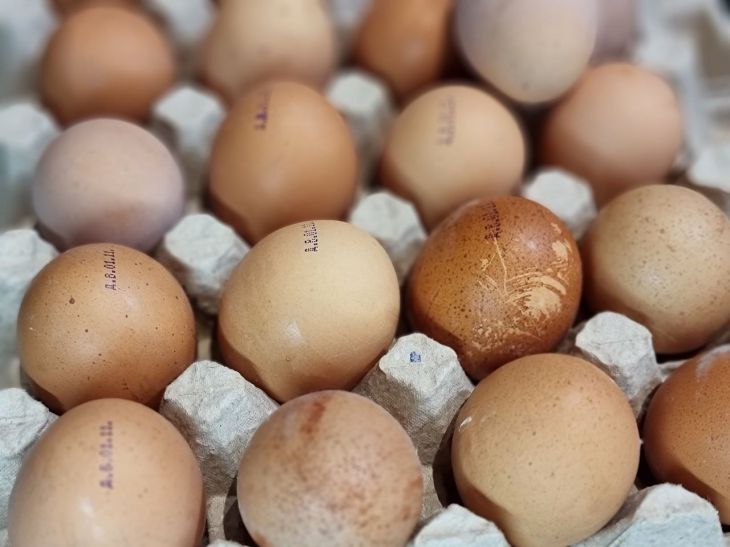Eggshells consist of calcium carbonate (95%), magnesium carbonate (1%), small amounts of phosphorus, silicon, magnesium, selenium, sodium, copper, zinc, potassium, molybdenum and other minerals.
This is a valuable product, throwing away which is an unaffordable luxury, especially for owners of subsidiary farms. To prepare and store the shells, you just need to dry and grind them.
There are at least 7 reasons to do this.
1. Food supplement for chickens
Finely ground shells are usually added to chicken feed to stimulate egg laying and increase the strength of egg shells.
In order for the shell to be thick and not to crack at the slightest impact, birds need a large amount of calcium. Of course, you can buy special additives, but the best option is the shell, as it contains all the necessary elements.
It needs to be ground into powder and mixed into the feed or chopped into small pieces and scattered where it will be convenient for the chickens to peck at it.

2. Natural feeding
Eggshells are a source of many nutrients, and the high calcium content improves soil properties. Calcium neutralizes acids, increases the solubility of nutrients in the soil, promotes root growth and seed germination, strengthens plant cells, thereby increasing resistance to diseases and pests.
The finer the shell is ground, the faster it decomposes in the soil and begins its "work". If you mix the shell with coffee grounds, the fertilizer will be even more effective.
3. Prevention of blossom-end rot
A direct consequence of calcium deficiency in the soil is blossom-end rot, which appears on the tips of the fruit. It mainly affects tomatoes, peppers and eggplants, less often cucumbers and squash. That is why it is worth adding eggshells to the soil when planting seedlings and using them as a natural fertilizer in greenhouses.
4. Liquid fertilizer
2 tablespoons of crushed shells should be infused in 5-6 liters of water for 24 hours. Water the plants at the roots.
5. Improving compost
Eggshells are a great ingredient for compost, as they enrich it with calcium. But you shouldn't throw in whole shells, as they will take several years to decompose. They need to be finely ground so that earthworms and microorganisms can process the small fractions faster.
6. Cups for sowing
For some herbs (such as watercress), sowing in eggshells is ideal. You need to pour substrate into the shell halves and sow the seeds there. You can germinate cucumber, cabbage, pepper and other vegetable seeds in the same way. When planting in the ground, you only need to crush the shell so that it cracks in several places.
7. Slug protection
You can try using eggshells as protection for vegetables and flowers from slugs. For their soft bodies, the sharp edges of the shells are a serious obstacle.
Eggshells are always useful in the household. Therefore, a thrifty owner will never throw away this valuable product, but will dry it and store it until the time comes to use it.








